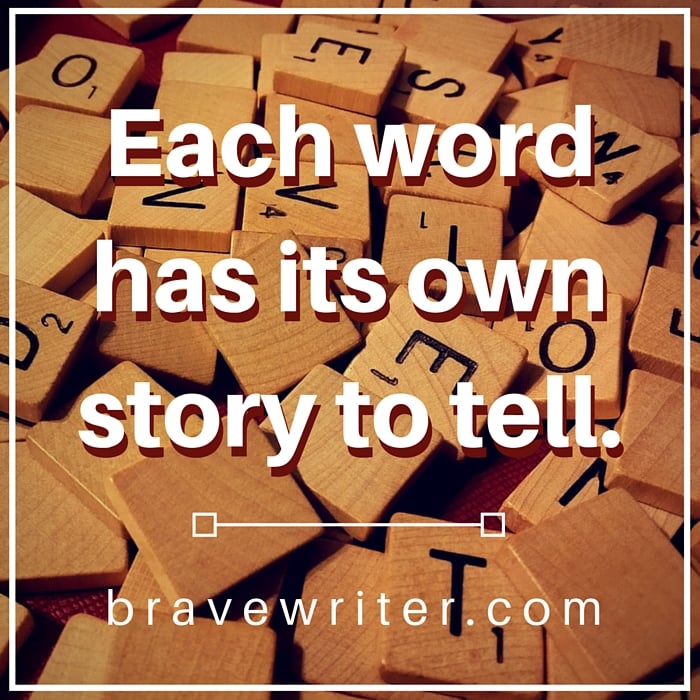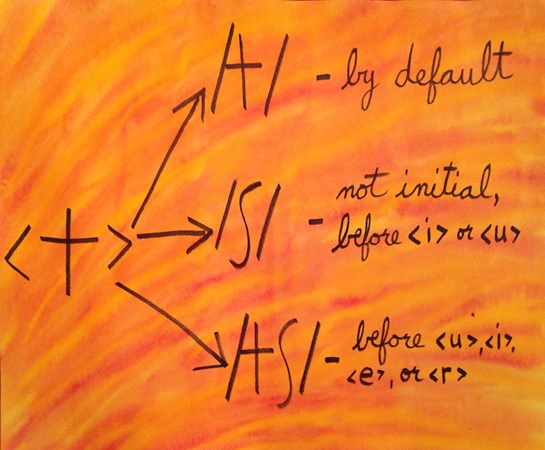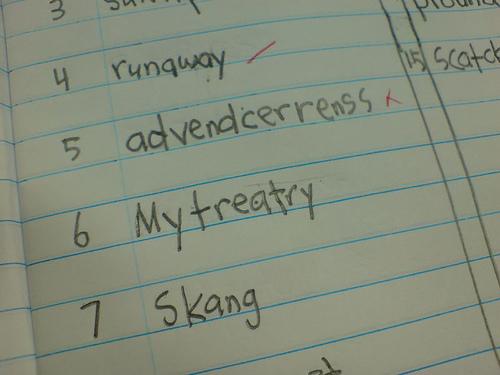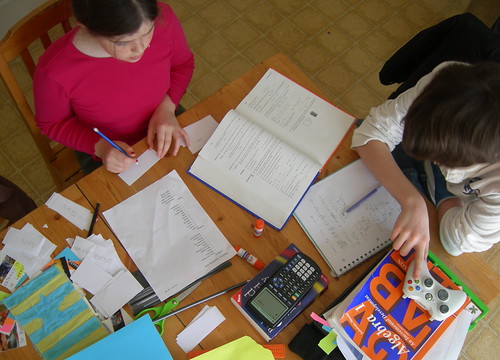
English Spelling Sense
by Brett Iimura
Join me in a brief game of word association. When I say “English spelling” you say….?
Confusing – Convoluted – Capricious?
Frustrating – Fearsome – Forbidding?
Inconsistent – Irregular – Illogical?
Diabolical – Demanding – Dangerous?!
What if I were to tell you it could be Fascinating, Freewheeling, and Fun? Rich, Rational, and Revealing?
Well, it can be because it is.
The written form of any language, its orthography, is “sense made visible” (Pete Bowers) and is meant to be meaningful to native speakers of that language. In English, it is not sound or pronunciation that is transcribed but meaning, “human thought made visible as text” (Michel Rameau). English can be nearly insurmountable for non-native speakers to learn but has the potential to reveal untold hidden riches for anyone who delves deeply into its offerings.
But first, many of us need to throw off the shackles of our own learning. (Isn’t this so true with much of the homeschooling adventure?!)
What would you say if I told you letters can’t be silent because they don’t say anything to begin with? That there are few, if any, “sight-words”? That phonics is a mirage or that there is no such thing as a *<-tion> suffix? Are your hackles up yet or has your curiosity been piqued?
Spellings are said to be irregular or exceptions to a rule when the instructor has no other explanation for them. But there is a reason behind every spelling; indeed the very purpose of spelling is to make sense! Just as a story is made up of words, each word has its own story to tell.
A word’s structure, or morphology,
is the basis of making sense of a word.
Trying to “sound it out” is nearly impossible in an orthography such as English in which the number of phonemes is far greater than the number of letters we have to represent them. Memorizing letters in a certain order is not only tedious but impossible to do with every word in the language. When the structural and historical significance behind a spelling is researched and revealed, a word can take on even deeper meaning. Those morphoLOGICAL and etymoLOGICAL associations can also ease the learning of that spelling, although, as with most things in life, they are not panaceas. Spelling becomes more of an intellectual pursuit to express oneself precisely rather than an exercise in frustration.
Let’s take an example. The typical “method” of explaining the spelling and pronunciation of the word <action> goes something like this:
First split the word into syllables.
ac ・tion
“Why not use a <k>?” one might ask. Most phonics programs will point out that <c> sometimes “says” the hard sound /k/. More detailed phonics programs might explain that <c> only “says” the soft sound /s/ before an <i>, <e>, or <y>. Older students might then ask what it is doing in <social> or <indict>. A slide down the slippery slope of sounding-it-out has begun.
Knowing that it comes from Latin’s actionem might be helpful in explaining the <c> versus <k> conundrum but it isn’t actually necessary (grapheme selection is often determined by position in a word) and it doesn’t explain the second half of the word’s pronunciation since the Latin pronunciation retains the distinct phonemes of both /t/ and /i/. Most teachers will explain that there is a <-tion> suffix in English and it is pronounced /shun/. Programs such as Orton Gillingham might explain the idea of closed versus open syllables to try to add clarity.
But what does this word <action> mean? What forms the base of its meaning if not the word <act>? Why in the world would we tear apart the letters that form the base of its meaning if the whole purpose of the written word is to make sense?
With the morphological understanding that every spelling must consist of a base, which holds the underlying denotation of the word and may have affixes attached, a word sum can be written as follows:
act + ion → action
The suffix <-ion> has the grammatical function in this word of indicating a noun. Phonology, of course, plays a role but in using the sound-it-out method one would wind up with a-k-sh-u-n. If grapheme-phoneme correspondence is delved into just a bit further, it will be noticed that the letter <t> in English can be used to represent at least three pronunciations. When looking at the diagram below, keep in mind the words <act>, <action>, and <actual>. Then try to find other examples.

After understanding the above concepts, who could possibly teach <question> as anything other than a quest for information, best represented by <quest + ion → question>. The pronunciation shift from <quest> to <question> is understood easily by native speakers and our spelling system is flexible precisely in order to accommodate these pronunciation shifts. Looking at the word from a morphological perspective allows retention of the spelling of the base and hence, underlying denotation of related words, despite the pronunciation shift. A list of affixes grows quickly through a student’s experience. Putting these building blocks together then becomes easier and assists in discovering other related words, such as <conquest> and <request>. Think of the possibilities for vocabulary expansion!
Approaching a word in print using the same tools but in reverse, peeling away the affixes to reveal the base, aids in recognizing a word that at first appears unrecognizable. Understanding suffixing conventions helps understand the spelling itself. Digging etymologically can also help inform the meaning of the unknown word, as well as make connections with other words.
Looking at English spelling this way requires a philosophical change. It is an approach to the written word, not a method. It is easily utilized in homeschooling because it can be adapted to any words your child is engaged with, whether they arise from children just becoming acquainted with the written word or from more advanced students. It seems to be particularly effective with dyslexic children who are often desperately searching for meaning in their learning and find this approach makes more sense than meaningless syllables. There is no particular sequence that must be followed. You can explore and discover alongside your child.
Some invaluable sites to get you started:
WordWorks Literacy Centre – a site created by Pete Bowers that looks at how modern English is built, why it makes sense, and why it’s supposed to. Builds on Real Spelling. Many practical ideas to get you started.
Online Etymology Dictionary – delves deeply into the etymology of English. It takes some learning and experience to understand all of its riches. Unbelievably, it is run entirely by one man.
LEX: Linguist-Educator Exchange – a blog by the foremost linguist I know who also runs online classes on various topics, one of which is run in conjunction with the man who runs etymonline and goes into how to get the most out of that site.
I have no financial stake in any of these sites. They are simply my stomping ground, my utmost resources, places I can get lost in for hours. My only purpose is to spread this approach as far and wide as I can while I also continue to expand my own knowledge. I utilize these sites often in my teaching of homeschooling groups and individual tutoring. Feel free to contact me at [email protected] if you are interested in having your child tutored using these tools.






















